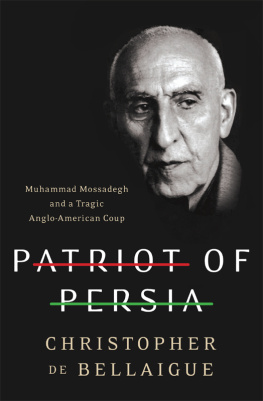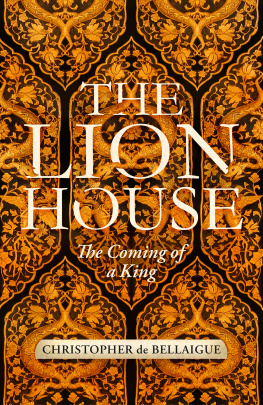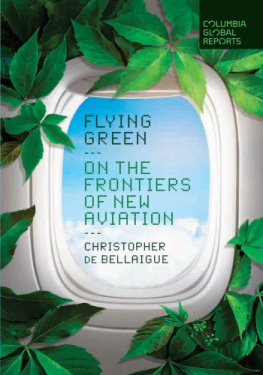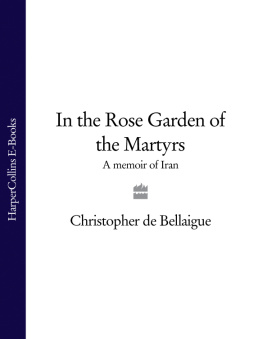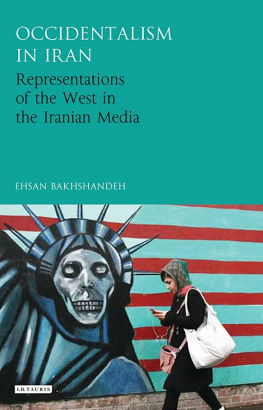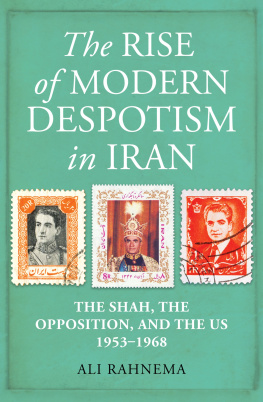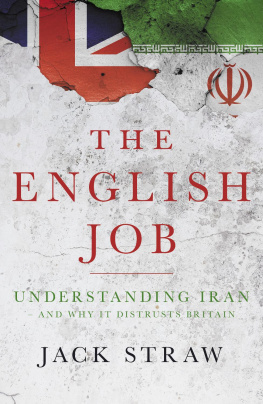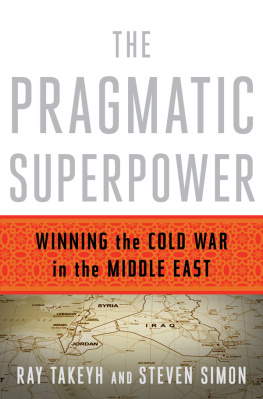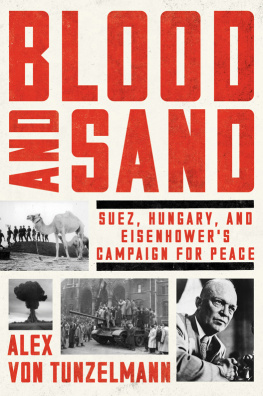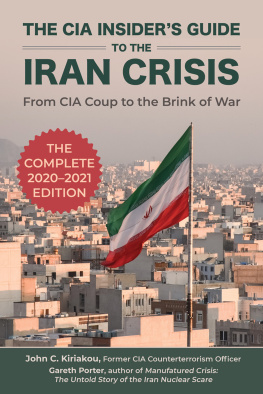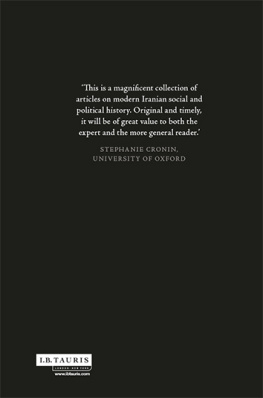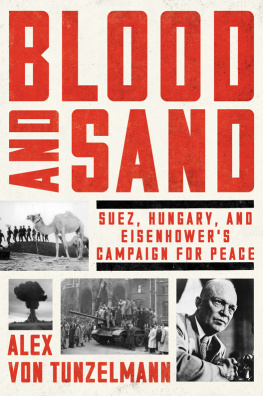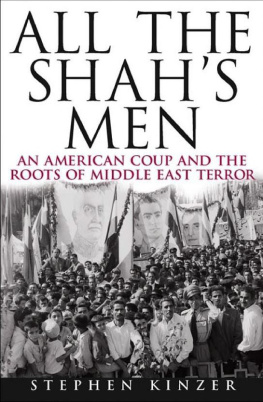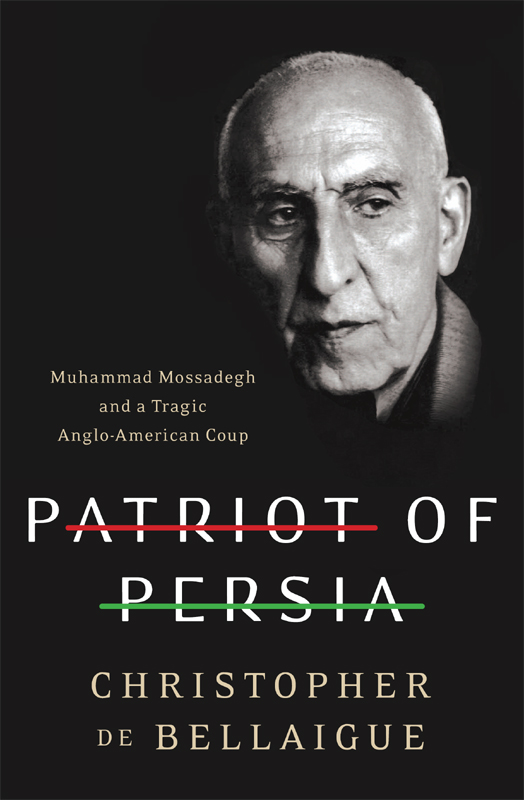
PATRIOT OF
PERSIA
Muhammad Mossadegh
and a
Tragic Anglo-American Coup
CHRISTOPHER
DE BELLAIGUE


Persia is the old European name for Iran. Iran is an even older, indigenous name. In the 1930 s Reza Shah told foreigners to stop using the name Persia, but some ignored him. Later on his son Muhammad-Reza Shah revoked the ban. It is now customary for Iranians and foreigners alike to refer to the country as Iran, although some Iranians living outside the country introduce themselves as Persian. I use both terms interchangeably.
Contents
It would not have occurred to me to write this book without the experience of living and working in Iran, an inspiration, in different ways, for so much that I write. To several scholars of Iran, most notably the late Iraj Afshar, Kaveh Bayat, Ali Dehbashi, Mansoureh Ettehadieh, John Gurney, Homa Katouzian, Paul Luft, Abbas Milani, Mustafa Nouri, Kamal Parsi-Pour, Morteza Rassoolipour, Yann Richard and Kamran Safamanesh, I am grateful for inspiration and practical help, while others, including my parents-in-law Abtin Ghezelayagh and Manijeh Amini, Muhammad-Hossein Zeynali and Mahmoud Emami-Naini, were also forthcoming with encouragement and support.
I enjoyed important institutional backing. In 20072008 I was the beneficiary of the fellowship that was endowed by that fine historian, Sir Alistair Horne, at St Antonys College, Oxford, where I also received much kindness from Margaret Macmillan, Avi Shlaim and Timothy Garton-Ash. The British Academy gave me a generous grant. I used superb resources: in Tehran, the Institute for Iranian Contemporary Historical Studies (where I am particularly grateful to Akbar Mashouf, Ahmad Fazeli and Ghollamreza Sharifi-Ashtiyani) and the Library of the Majles, and, in Britain, the library of the Middle East Institute at St Antonys, the British Library, the National Archives, the library of the School of Oriental and African Studies and, most pleasurably, the London Library.
From the Mossadegh family, Hedayat Matine-Daftary and Majid Bayat gave generously of their time to recall, advise and, not infrequently, correct. Farhad Diba was forthcoming with counsel and suggestions. John Gurney, Homa Katouzian and Hedayat Matine-Daftary were kind enough to offer comments on the finished manuscript. My father Eric de Bellaigue, performed his usual task of suggesting stylistic improvements. My agent, Peter Straus, ably assisted by Jenny Hewson, my publishers, Will Sulkin at The Bodley Head and Terry Karten at HarperCollins, Kay Peddle of The Bodley Head, who prepared the book for publication, and Clara Womersley, my publicist, were something of a dream team for a writer. My homeland dream team, Bita, Jahan and Kiana, endured, grew and came out smiling.
Prologue
Father of the Nation
I have an Iranian friend who is too young to remember Mossadegh, but her parents were in public life and were close to him. When my friend was a small child and Mossadegh was living out his last years under house arrest, he sent her sweets. Her mother picked the wrappers from the floor, flattened them, and put them somewhere safe. Now my friend is a middle-aged woman with two strapping sons, but she has kept the sweet wrappers. They are like a sign, planted in the soft soil of her childhood, showing what she owes to whom.
When Mossadegh was prime minister in the early 1950 s, and the world was coming down around his ears, a grizzled villager called Ayub found himself in the great mans presence. Mossadegh was lying on his famous iron bed, which had been moved to the balcony on account of the heat. Ayub felt awkward and embarrassed until suddenly the prime minister seized him with his surprisingly strong arms and embraced him. Ayub had never met Mossadegh before. His eyes filled with tears and he was unable to speak for emotion. Iran was not a place where prime ministers embraced peasants.
A lot of sentimentality surrounds Muhammad Mossadegh, and at first sight there is something startling about this. Mossadegh was a peculiar man. He was quite bald and had a long, drooping, rather bent nose, and thin, sensual lips, and he fainted and howled in public. He was a shameless hypochondriac and quite often threatened to die. He seemed always to have been ancient from around the age of forty, when the last of his hair abstracted itself from his head, he looked a decade older than he really was. He ran Iran, which is a big and complicated country, wearing a pair of pyjamas.
In many western countries, eccentrics are barred from high office by the innate caution of the party machine. There was no party machine in Iran in the 1950 s; politics was about personalities and Mossadegh was the biggest of them all. Far from disbar him from the publics affection, advanced age meant respect and a licence to behave oddly. Mossadegh used these advantages to bamboozle his enemies and captivate his friends. Winston Churchill considered Mussy Duck, as he called him, to be a lunatic. To millions of his compatriots, Mossadegh personified their country more completely than anyone else. Quite simply, he was Iran.
He started life conventionally enough, a product of the Persian upper class, in the last decades of the nineteenth century. In the 1920 s and 1930 s he achieved fame with a struggle against royal despotism which almost cost him his life. Mossadegh became notorious around the world in 1951 , when he dared to nationalise Britains biggest overseas asset, the Anglo-Iranian Oil Company. He went on to lead the most enlightened government his country has ever known. The British wanted revenge and they enlisted the help of the United States on the grounds that Mossadegh was a communist stooge. On August , 1953 , he was overthrown by a conspiracy hatched by the American and British secret services in favour of the Shah. He was banished to his estate and became a non-person under the Shahs new dictatorship. The father of the nation had been cast aside, but he was impossible to forget.
Father of the Nation many Middle Eastern rulers have claimed this title for themselves. It exempts them from popular scrutiny, indulges their every beastly act. Dont give me grief for knocking my people about, the dictator chides, for one occasionally has to be cruel to be kind. Mossadegh was remarkable in his region in that he did not feel the need to be cruel. He was not a soldier, deriving prestige from the pips on his shoulders and the shine on his shoes. He did not borrow his authority, like a mullah, from God. It was all his own.
He was more than a politician, and less than one. As a reader of his public, he was unrivalled. But he spent his life running fleeing from office and his refusal to compromise his principles for the political good was pure obstinacy and pride. He was an old-fashioned hero and this explains another, rather surprising element in his renown. Mossadegh did not end up a political winner. The 1953 coup was a catastrophe which slammed him to the floor, and from which Iran never fully recovered. But Iranians are kind towards heroes who fall. It depends on the manner of the fall, because a valiant defeat against overwhelming odds at the hands of a malignant evil is regarded as victory on a higher, metaphysical plane. The epics are full of such heroes, and the story of Islam would not be complete without them.
Mossadegh was instrumental in his own downfall. His judgement failed him at the zenith of events, for it is a captains job to steer his ship into calmer waters and Mossadegh was driven on by his obsession, into the teeth of the storm. The Shah lived to tell the tale, and he had pretensions to captaincy of his own. With Americas help he built a magnificent ship which turned out to be made of paper and was swamped by the first wave.
Next page
